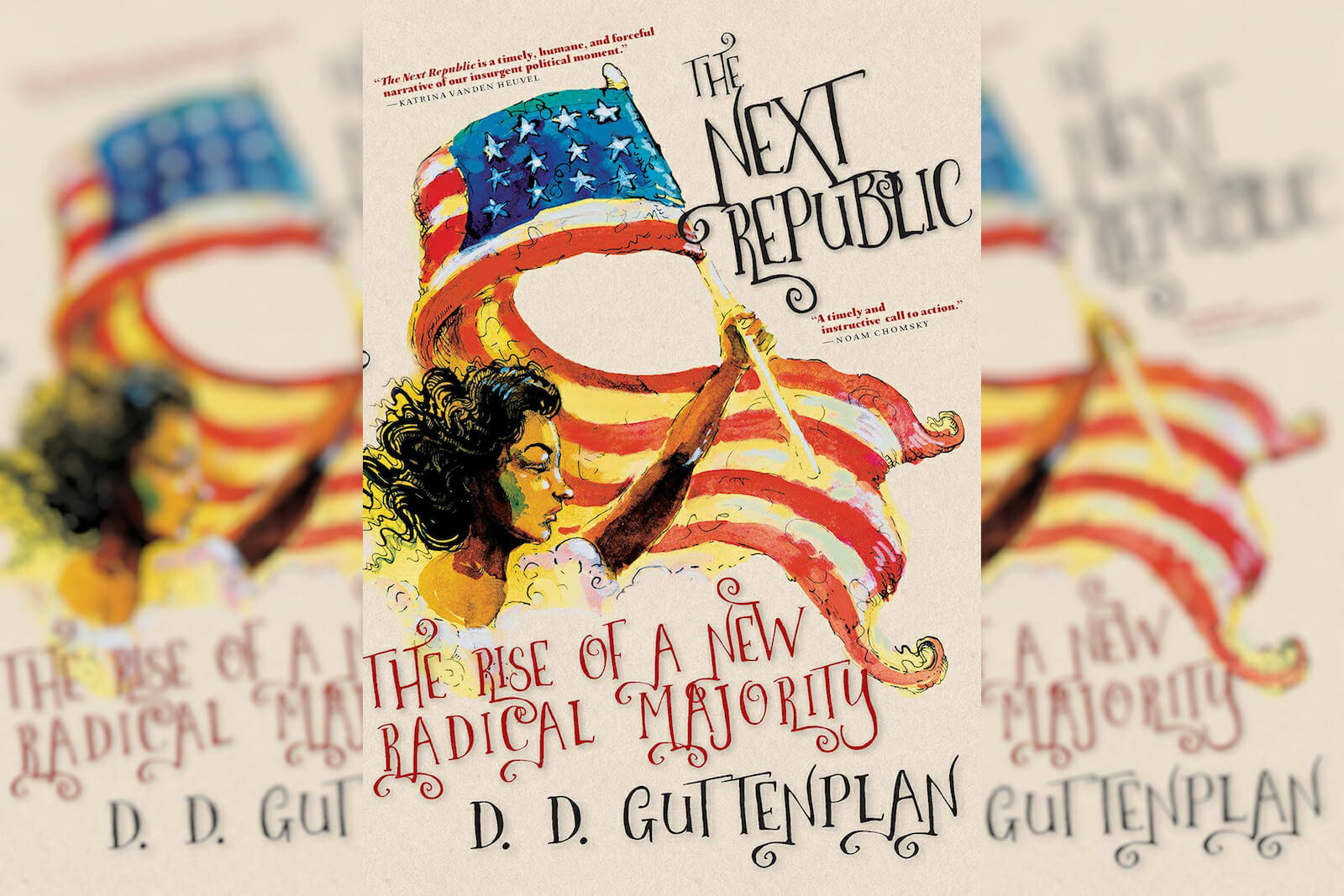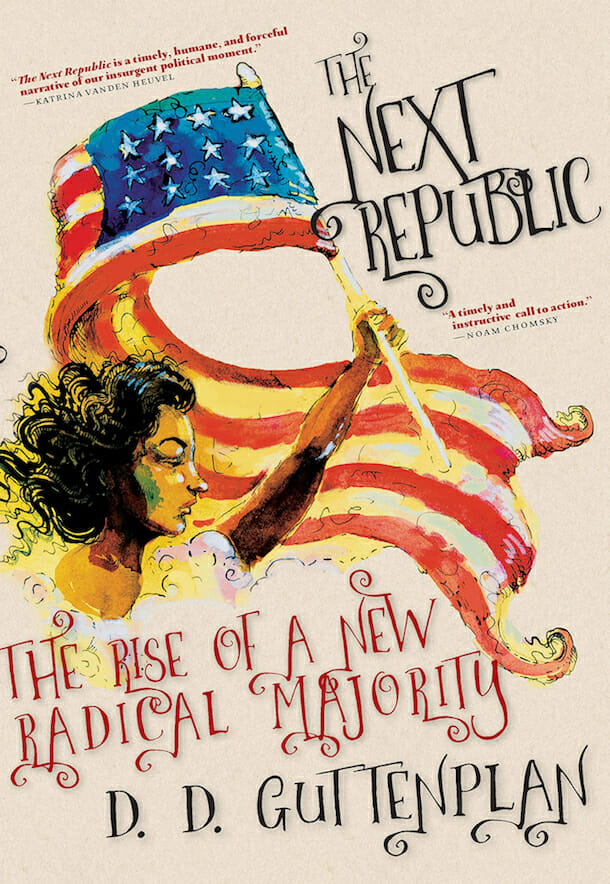
Books
Book Review: ‘The Next Republic’
As the title indicates, D.D. Guttenplan’s new book, The Next Republic: The Rise of a New Radical Majority, is about how the fledgling progressive grassroots movement can achieve lasting change in Trump’s America. Guttenplan writes about several current progressive activist leaders, as well as the successes of activists past.
One current activist Guttenplan chronicles is Corbin Trent. This Deep South millennial co-founded Brand New Congress and is Co-Director of its sister organization, Justice Democrats. These two groups were founded after Trump’s election; in the short period of time since, BNC has advanced 9/30 of its US House candidates (all Justice Democrats) to November’s general election; JD has 24 House Candidates and 2 gubernatorial candidates running in November (out of 79 candidates who ran). 2 sitting Representatives, Raul Grijalva and Ro Khanna, plus Senator Pramila Jayapal, chose to become JD’s inaugural members. This is amazing momentum for a pair of groups who are not only less than two years old, but who also refuse all corporate campaign donations. The book document’s Trent’s rise from a burger restaurant owner to one of Bernie Sanders’ most dynamic primary campaign organizers to his current breakthroughs in American electoral politics.
Guttenplan writes a lot about the links between civil rights and labor rights. Though the Democratic centrist line of thought tends to view racial/gender issues and labor issues as being separate and even opposed to each other, the book proves otherwise. For instance, many of the original suffragettes got their start in activism with the abolitionist crusade. Also, the famous sit-in protests of the Civil Rights movement were preceded by “sit-down” protests started by the IWW labor union in 1936; the labor-savvy Martin Luther King, Jr. no doubt knew about this protest legacy. Southern cotton plantation slavery, which would appear as having been universally beneficial to white people, actually rapidly diminished workplace conditions for white textile workers in the North. Activist Jane McAlvey summarizes this theme of the book as such, “The civil rights movement couldn’t outvote the political establishment in the South because blacks couldn’t vote. It was only when they could create a crisis for corporations and businesses in the South and get them to say, ‘We’ve got to stop this because it’s causing economic harm.’”

The chapter on the current mayor of Jackson, MS., Chokwe Antar Lumumba, further illustrates this link. The son of a black separatist-turned lawyer for clients like Tupac, Lumumba won election in the heart of the Deep South on an openly socialist platform. For instance, he cites the success of the publicly owned Green Bay Packers as inspiration for his plan to open a community-owned movie theater (in a city that has none). Lumumba and his fellow Jacksonians (of whom 4 in 5 are black) have been facing crippling de-investment since the white-flight and deindustrialization of the 60s and 70s. The city is continuing to face existential budget cuts and threats of a public school takeover from the deeply white/Republican state government. Lumumba and his citizen-led initiatives are fighting against the state-engineered decline that has claimed many cities.
Perhaps the most illuminating chapters in the book are not about current activists like Trent and Lumumba, but those of the past. Guttenplan has whole chapters about the Whiskey Rebellion, the Lincoln administration and FDR’s New Deal. The author offers brilliant insights into the existential debate the newly independent United States faced between federally minded Founders like Alexander Hamilton and state-oriented Founders like Thomas Jefferson. This ultimately culminated in the former leading a bloody crackdown on Pennsylvanians participating in the Whiskey Rebellion, which had impacts that reverberate both in the state and nationwide, to this day.
The Lincoln and FDR chapters shed light on the complex interplay of race and economics in how these Presidents addressed slavery and the Great Depression. The Lincoln chapter does a great job of explaining terms that are barely brushed in typical US high school curricula, such as the Missouri Compromise and the Kansas-Nebraska Act. Guttenplan notes how the South was perpetually undermining the federal republic even pre-Secession, such as through the Fugitive Slave Act and pro-slavery rioting in the new state of Kansas. The FDR chapter explores the rise of labor unions, civil rights and Keynesian economics. Sadly, the book completely ignores the economics and race politics of Roosevelt’s Exec. Order 9066, which expelled 2/3 of Japanese Americans from their homes and sent them into internment camps. The repossessed houses made many of FDR’s real estate cronies a lot of money.
The Next Republic provides hope, pragmatism and strategy in equal measure. It shows the successes and failures of many progressive initiatives, past and present. The analysis of past eras shows how movements must grow through persistence and a bottoms-up approach, as opposed to the myth of the magnanimous leader. There are a lot of parallels to be observed in the book on the oligarchic and racial struggles of today and yore. Surprisingly, the author includes some of the positive populist rhetoric Trump deployed during his campaign -which the media completely ignored, but swing-state voters and former Obama voters didn’t. Trump has mastered working class rhetoric, but ignored working class policy. If progressives are to change the tide of America, they must not only craft working class policies (Medicare for All, ending foreign military intervention, banning corporate money in elections), but messaging that will sell it to the American people.
